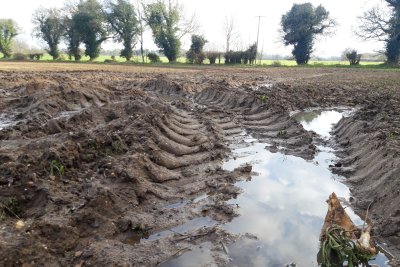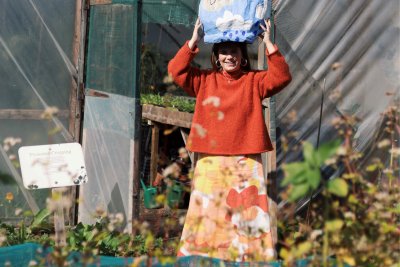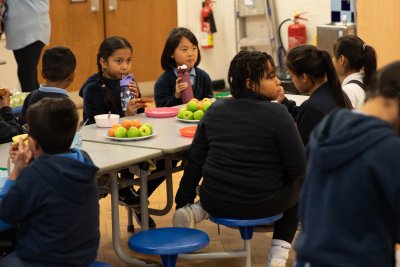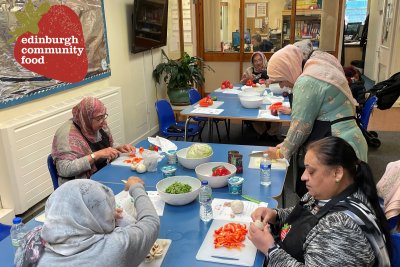The response to the cost of living crisis must learn lessons from the pandemic
A new report examines the response to food vulnerability during the pandemic. Simon Shaw highlights some of the report’s key findings and learning for our current and future response to food insecurity.

The UK has a chronic food insecurity problem. The UK Government’s UK Food Security Report found that over 5 million people in the UK did not have enough food before the pandemic. The latest round of data from the Food Foundation shows a continued rise in food insecurity across the UK among children and adults and that disabled people and people in receipt of Universal Credit are five times more likely to be food insecure.
Local responses to household food insecurity across the UK during COVID-19 (September 2020 – September 2021) draws on the experiences of local practitioners from councils and the third sector in 14 areas around the UK to provide an analysis of local responses to food insecurity during the pandemic and makes recommendations for policy and practice as we emerge from the pandemic, deal with its aftermath and respond to the cost of living crisis.
Learning lessons for the cost of living crisis
The report sets out the breadth of activity, across local councils and third sector organisations and suggests some promising trends that have the potential to reshape the landscape of local responses to food insecurity. However, the report is also very clear about some of the severe downsides to the high levels of demand on the food aid and community food sector.
As the cost of living and inflation rises, food aid providers and other community food projects offering accessible, affordable food are getting more and more concerned about meeting increased demand for support. It is vital that our response learns the lessons from the pandemic and avoids over-reliance on food projects. The study identified a very real fear about the growing reliance on a sector already at capacity and concerns that some of the reactive responses which appeared during the pandemic, and were relied on by government and councils, are no longer in place. This fear is increasingly becoming a reality as inflation rises and higher prices start to bite.
“That's what worries me, is the level of dependency [there has become] on our service, and we now have no funding attached to us, and how we get out of that. That's frightening for us.” (Charitable food aid workshop, Belfast)
Making ‘cash first’ responses the norm
The research highlights the welcome increase of cash-first responses to food insecurity during the pandemic across many parts of the UK. It is now essential that we see this as a desirable and sustainable response to food insecurity and embed it in national and local responses. Given the Bank of England’s estimated increase in inflation to over 7% by the spring, Sustain supports calls for a 6% increase in benefits from April and further uptake of the real Living Wage. Councils should also continue to make the most of their local welfare schemes to provide simple referral pathways for people to access support. The Independent Food Aid Network has also developed cash-first leaflets with some of the areas covered in the report; these can be a powerful way to share information on people’s entitlements and build a shared local response, for example using the leaflet as a foundation for training or identifying and acton on gaps in support.
“We definitely support the cash-first [approach], you know, it's about people having better minimum wage, topped-up income, you know, it's just the same as everybody else in society in terms of their buying power.” (Charitable food aid workshop, Edinburgh)
Consolidating partnership and collaborative working
The extent and benefits of partnership and collaborative working is another key theme identified in the report. Across the UK, local food partnerships, food poverty alliances and other comparable networks rose to the challenges presented by the pandemic and were a fundamental part of the response to food insecurity. In some areas these partnerships pre-dated the pandemic, whereas in other areas they developed in response to the pandemic. Across the case study areas, there was widespread recognition of the benefits of this approach, but also concerns that energy to coordinate and coalesce may diminish as the pandemic subsides, but other huge challenges remain. There is a clear need for joint approaches to continue as we know that this is an efficient way to respond to local needs, provide wraparound support, maximise resources, communicate across a wide range of organisations and interventions, identify gaps and, crucially, tailor support to specific groups and communities including Black, Asian and minority ethnic people, people with no recourse to public funds, disabled people and older people.
“We’re looking at keeping the engagement going with the voluntary sector and with that wraparound service, especially going into these worrying times of furlough, higher national insurance and the working poor.” (Council workshop, Derry City and Strabane)
“The pandemic has really strengthened that opportunity for developing partnership working with the various food projects and finding the gaps, and partly being led by those organisations in terms of identifying what their needs are and how the authority can help fill those gaps and build on that.” (Council workshop, Swansea)
Being clear on the role of food
The report explores the myriad of ways that people have been supported to access food during the pandemic, including cash transfers, vouchers and food or meal deliveries. As noted above, we must continue to champion and embed a cash-first approach. But where does that leave other non-cash support, especially when social security is limited? Clearly, free school meals access should be expanded and as should Healthy Start eligibility as well as ensuring uptake is not undermined by the current flaws in the digitisation of the scheme. The research identifies how food and meals provision can bring so many benefits beyond the food itself, including linking people into financial and other support and advice, preventing isolation and empowering people to support themselves and their communities. Research participants spoke about a wide range of food initiatives that pre-existed the pandemic, which were adapted or stopped during the pandemic and that they would now like to restart, including shared meals and face-to-face support. However, it is vital that any food support does not undermine a cash-first focus.
“It's finding ways to try and support those groups to move beyond that reactive food aid response, and if they're going to be continuing to take action around food, to find ways to support them to potentially come together, work together, support each other, develop new ideas and develop more longer-term, sustainable solutions.” (Council workshop, Greenwich)
Chronic food insecurity requires a response beyond the pandemic
The pandemic is, we all hope, a once in a lifetime event. Sadly, food insecurity remains a widespread and chronic challenge for the UK. This research helpfully documents the multi-faceted response during the pandemic and draws out key lessons that it is essential to apply as we deal with Covid-19’s aftermath and the increasing cost of living crisis.
This new report forms part of the wider UKRI funded research ‘Food vulnerability during COVID-19’ research project of which Sustain is a partner.
Published Thursday 10 February 2022
Food Poverty: Millions of people in the UK struggle to get enough to eat. We’re working to change that through people-powered projects and campaigns that tackle the root causes of food poverty and ensure everyone has dignified access to healthy, affordable food.





